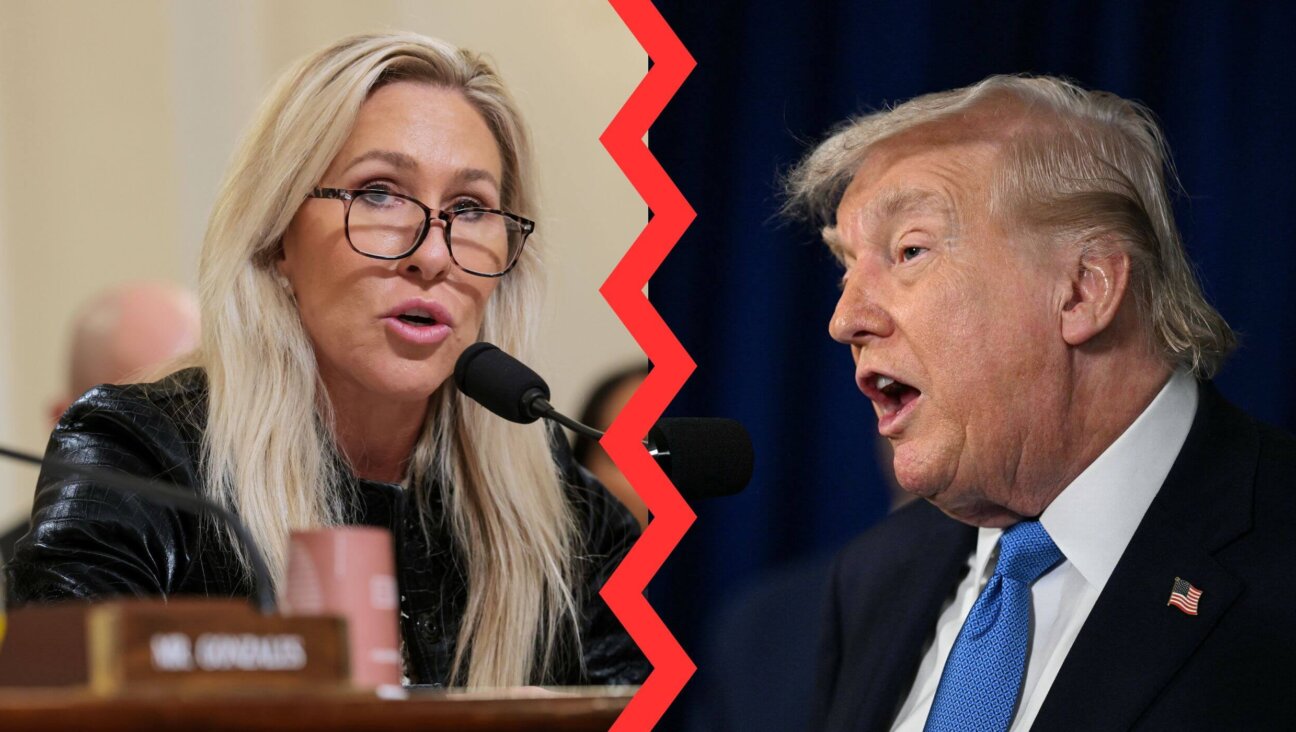Higher Education’s ‘Iron Law of Admissions’
All the talk surrounding this week’s Supreme Court ruling upholding affirmative action at the University of Michigan’s law school has ignored one fact of higher education: White students with low grades also get in.
The focus on racial preferences usually obscures the many elite preferences for upper class supporters of higher education. Obeying the “Iron Law of Admissions,” the selection process has historically followed the interests of a university’s benefactors.
In fact, lower standards for donors, alumni children and prominent families usually account for more spots than affirmative action at top colleges.
When I was a student-recruiter for the University of Michigan’s admissions office last year, children of alumni were awarded automatic points, big donors had special access to admissions officers, and well-connected applicants were eligible for extra points at the “provost’s discretion.” The bias is even more pronounced at private colleges, which are more dependent on private funding and give greater weight to elite preferences.
Most colleges use lower standards for the children of big donors. A 1996 University of California report found that over 200 “prominent individuals” pressed the admissions office to admit an applicant. Fundraising is an integral part of the admissions process, as Wesleyan’s dean of enrollment planning, Mike Schoenfeld, explained this February: “I’m sure every admissions office in the country is paying attention to families’ ability to make a major donation.” And universities that lower standards to admit more donor children get more donor money. Duke University is an aggressive example. During the last decade, the number of students admitted due to “wealth or connections” has quadrupled, and Duke now leads the nation in nonalumni donations.
Meanwhile, alumni still provide 28% of private donations to universities, and in return their children are usually accepted at double to triple the rate of comparable applicants. Harvard University defended this fundraising-through-admissions to the federal Department of Education during a compliance review in the 1980s, explaining that admitting the children of alumni “stimulates” their “contribution of service [and] money.”
Money, however, has not been the only motivation for alumni preferences. During the 1920s, top colleges wanted to stem the influx of Jewish students, who were excelling through merit-based admissions. Legacy preferences were designed to curb Jewish enrollment and protect the “dominant Protestant upper class” from competition, as sociology professor Jerome Karabel recounts in his study of Ivy League admissions policies. The competition is much stiffer today, so colleges have enlarged upper class preferences for benefactors.
Elites have also gained admission through preferences for the disadvantaged. Affirmative action’s image and legitimacy have been hurt by its tendency to help wealthy blacks more than disadvantaged applicants. As sociologist William Julius Wilson found in his studies on race and public policy, affirmative action usually clears “the path for more privileged blacks,” but fails to address the “impersonal economic barriers confronting members of the black underclass, who have been effectively screened out.”
In short, during the last century elites have disproportionately benefited from every admissions preference, whether it was originally established to curb Jews, help minorities or just raise money. Due to economic, social and legal pressure, today’s elite colleges often favor wealthy blacks over poor whites, dynasties over regular families, alumni children over working-class students — and donors above all.
Yet critics of college admissions focus on the one preference that still helps some disadvantaged students and advances diversity. Affirmative action opponents talk a lot about merit, but they do not complain when it is trumped by elite preferences. Supporters are not much better on this issue — they only mention elite preferences to highlight the inequity in college admissions. When I was at the University of Michigan, many affirmative action advocates even defended elite preferences, fearing that any reduction in the benefits for privileged students could undermine the equalizing rationale for affirmative action.
This week’s Supreme Court decision offers the chance to both improve affirmative action and reconsider elite preferences. Following the ruling, the University of Michigan’s president praised the court for providing a “road map” to future admissions policies by supporting the law school’s plan and rejecting the undergraduate point system. The decision defines legal boundaries — racial and elite preferences are constitutional — but colleges must still decide which preferences support the goal of an exceptional and diverse student body.
To that end, universities should abolish the elite preferences for alumni, donors and well-connected families. What difference would it make? A 1990 internal Harvard investigation found that if legacies were admitted at the same rate as other applicants, the number of freshmen “would have dropped by close to 200 — a figure that exceeds the total number of [underrepresented minorities] enrolled in the entire class.” Cut prominent families and donor spots — Duke sets aside more than 100 a year — and you could fill a freshman seminar. By only considering class when it holds students back, colleges can advance merit and opportunities for all disadvantaged students.
Despite the Supreme Court’s ruling, the “Iron Law of Admissions” is likely to continue holding universities hostage. No institution wants to change first, and serious funding losses can cripple everything from academics to financial aid. But if universities worked cooperatively to reform policies, donor retaliation would be less likely. More importantly, if students and alumni consistently advocated merit and opportunity over privilege, universities might be emboldened to act.
Many Jewish students are in the unique position of benefiting from the very policies that discriminated against their grandparents. Now that our community benefits from elite preferences, will Jewish students, alumni and donors forego privilege to fight for what is right?
Ari Melber is a former student-recruiter and graduate of the University of Michigan.















